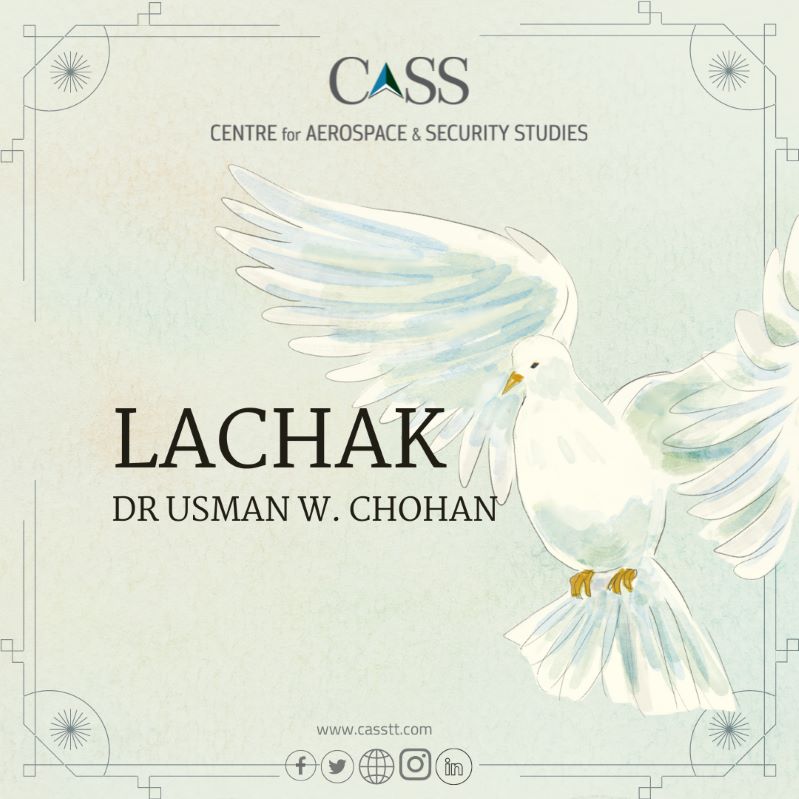In the course of a nation’s life, it may come at a crossroads where difficult decisions must be made that exact weighty concessions from the status quo. Elites must, in such conditions, yield to the wider national interest, ceding some degree of power to preserve something much more important in exchange. In societies where the elite are more adaptive and dynamic, such measures are adopted without too much bloodshed and resistance, and society becomes stronger as a result. In many South Asian languages, the word for such flexibility is lachak (e.g. لچک، लचक), and elites are compelled to demonstrate this adaptiveness during focusing events and periods of social strain. In 75 years of our post-colonial history, this lachak has not been demonstrated at the times when it mattered most: the 1970 elections, and in 2023.
When the 1970 elections were conducted, for many the first and only truly free and fair election, it was the All-Pakistan Awami League that won the popular vote, and by a significant margin. Yet the West Pakistan elite, civil and military, refused to endorse the election result and threw all sorts of wrenches into the equation. Their lack of lachak created a simmering frustration that boiled over into rage after Cyclone Bhola killed 300,000 people. Would it really have been so terrible to have a Bengali-speaking Prime Minister, especially one whose Radio Pakistan broadcasts focused on the uplift of the downtrodden all across Pakistan? Lachak remained absent, tensions simmered, and ultimately the winning party’s leader was thrown into prison. He was rotated amongst the jails of Rawalpindi, Lyallpur, and Mianwali. His plea to his jailers was, if he had done nothing wrong, he should be free to go; and if he had done something wrong, he should be told what that something is. In his absence, pre-recorded messages circulated amongst ordinary citizens roiled into action against an elite that refused to exhibit lachak. In the process, the majority of Pakistanis were no longer Pakistanis. Such is the price of retrenched, inflexible elites, and we have lived in the silence of that monstrous catastrophe for half a century.
The hallmark of other societies that have risen economically and also maintained a broadly free polity is that they have repeatedly shown lachak. No country demonstrates this better than the United States, which markedly reinvented itself multiple times over just the past 150 years, let alone before (as in Lincoln’s day). After 1940, the WASP elite could have maintained its stranglehold on American power (e.g. the Roosevelts and Vanderbilts), but instead they made the system more inclusive to bring into the fold what were previously reviled communities such as the Catholics and the Jews. The current US president is a Catholic, and Jews have risen to all segments of American society. Without the WASP lachak, parochialism would have held America back, stifled its dynamism, and let its vast inequities quickly turn into a destructive unraveling, repeating the strain faced in the 1860s. An even better example is after the Civil Rights movement of the 1960s, finally culminating in an African-American president 50 years after the peak of the movement. From not being endorsed as full citizens to having a president of the same community is a sign of remarkable lachak on the part of the system’s elites, even as grave problems may linger in the background. The elites demonstrating their flexibility, in the end, thwarts the boiling point from being reached.
Over here, despite the inflexibility of the power-brokers 50 years ago, leaving Pakistan on the wrong side of history, a similar turning point has emerged since 2022. At a time when the global economy is going through the convulsions of a mass monetary contraction, the country’s focus should be on bolstering the economic foundations and embedding resilience in the socioeconomic fabric, but instead leaders are embroiled in alleyway vendettas and settling scores. Once again, power brokers are not showing the requisite lachak. The leader of the popular party has just done a short stint in jail, with a pre-recorded message roiling people onto the streets, creating economic disruptions and fomenting social animosities. The main ingredient of flexibility and adaptiveness within the system remains absent. There is every risk that things may go into a frenzy, even without a Cyclone Bhola of 1970 this time around. As with the last time, the people are forced to suffer while the entire political spectrum exudes stubborn rigidity at a critical juncture.
Lachak is required to absorb the demands of the people and to build a more robust foundation for a largely young country that has fallen behind every year for the past 75 years. The same country cannot be on the wrong side of history twice in 50 years. The organism cannot fail to adapt twice in its life. Darwin’s axiom of “survival of the fittest” was meant to signify the most adaptive as the most fit, not the roughest or meanest as the most fit. The elite may not enjoy the same privileges, and it may not be the same people who constitute the decision-making elite, but the country will be better off for it. In that Darwinian sense, it is again adaptiveness (lachak) as sociopolitical and socioeconomic doctrine that offers the best, and indeed the only, way forward for a society.
Dr. Usman W. Chohan is Advisor (Economic Affairs and National Development) at the Centre for Aerospace & Security Studies, Islamabad, Pakistan. He can be reached at [email protected].





